|
|
|
 |
| |
|
|
Fountain - 20 Chapel
Road - 1866 |
|
Now Harlequin's |
|
|
|
|
There is no getting away from
it, this pub will always be known to many as 'The Fountain'. Later
guises included The Fathom and Firkin, The Assembly, Bar Release,
Slug and Lettuce, and currently, at the time of writing, renamed Harlequin’s, in 2025.
Right: The classic view of the
fountain who's basic shape still remains. Originally an
architecturally rich building of red brick that has lost a lot of
detail over the years.
It is thought, but not proven,
that the Fountain took its name from the public fountain positioned
outside the then town hall.
It may be a bit of a surprise,
but that's not its original position. The map below explains a
little better.
|
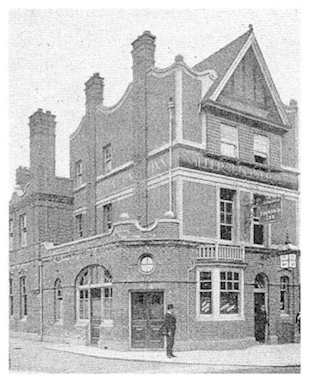 |
|
|
|
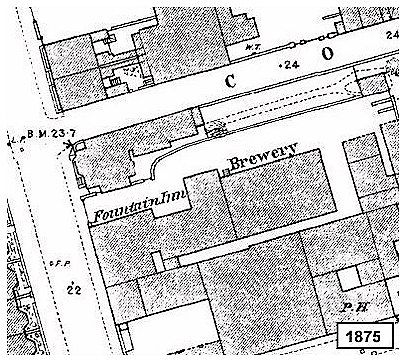 |
From what we understand, the
Fountain started life around 1866 as a brewery in the position shown
on the map, owned and run by Richard Carter. It was soon extended
outward and had a frontage called the Fountain Tap where ale could
be sold and consumed by the public.
Richard Carter lived in the building next door, on the corner of
Chapel Road and Chatsworth Road (Then Cooks Row), which we today
know as the Fountain.
In 1890 Mr Carter had decided
to rebuild his home as a proper pub, but it came to light that
although he owned both properties, the site of his then home wasn't
covered by his alcohol licence forcing him to re-apply which was
successful.
The 'P.H' on the map was the
Volunteer inn, later renamed the Dragoon in Market Street. |
|
|
|
|
1902 - 1920 |
| |
|
|
Jack Watts, author of 'Old
Worthing As I Remember', recalls the Fountain Hotel and its
proprietor, Mr Wardroper with its very cosy bars'. I assume this to
be
the same Wardroper who was landlord of the Maltsters in Broadwater
from 1892 to 1896.
Paul Holden published an item
in the Worthing Journal: May 1940: A rebuilding of the Fountain
hotel has been completed by Frank Sandell & Sons to the direction of
architect CH Ridge, the exterior of the building has been
brick-faced, and the interior drastically reconstructed.
The Spanish garden dining room is one of the principal features.
|
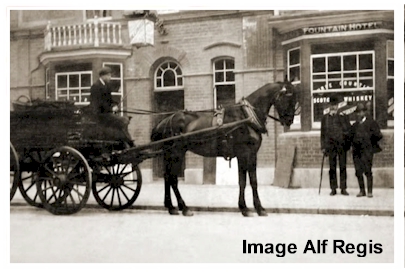 |
| |
|
|
1923 |
| |
|
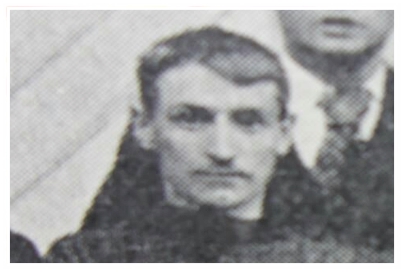 |
1923 was marked by the death
of landlord John Thomas Robertson. Many of the drinkers in his bar
would have been aware of his football history.
Born in 1875, he played in native Scotland before moving down to
England. His professional career began in Stoke where he played in
the first division, including six FA Cups matches. He moved on to
Millwall Athletic.
Robertson also played for Liverpool before joining Southampton in
1902 where he later sustained an injury that temporarily delayed his
playing. Robertson played his last season in 1904 with Brighton and
Hove Albion before retiring. He became landlord of the Fountain in
1919. |
|
|
|
|
1930s |
|
|
|
|
A Fascist History. It seems a
little hard to believe now that the Fountain was the meeting place
of the fascist movement in Worthing. Oswald Mosley and William Joyce
(Lord Haw Haw), were attending a fascist meeting at the Pavilion. As
they left, protected by a group of Black Shirts, entering a cafe in
the arcade, they were attacked by a group of youths. Whilst
attempting to flee to their headquarters in Ann Street, fascist
supporters from the fountain rushed to their aid.
Mosley died of natural causes on 3 December 1980
Joyce was executed on 3 January 1946 at Wandsworth Prison, aged 39. |
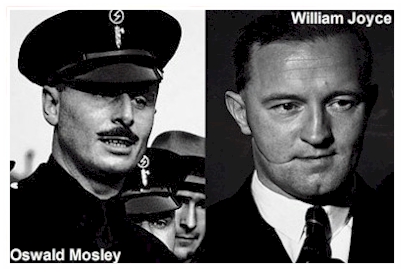 |
|
|
|
|
1940 |
|
|
|
|
The exterior
of the building has been brick-faced in a modern style and the
interior has been drastically reconstructed by local firm, Frank
Sandell and Sons, Ltd. |
|
|
|
|
1975 |
|
|
|
|
|
|
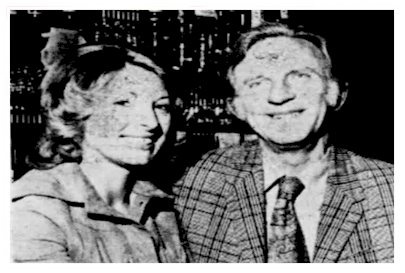 |
Meet Mr & Mrs Rauber. Max
Rauber and his wife, Marion, stated very clearly to the local press
that he plans to make the Fountain the 'swingingist pub in
Worthing'.
He continued that walls were
to be knocked down, carpets re-laid, and a complete refurbishment
was planned. The public bar will be decorated in a "kinky" manner
and will specialise in home-made pates, cheese and wines.
'The Wine bar
doubles as a dining room serving business lunches and Bistro food.
An open lounge bar and being the main feature, however a Corner Bar
caters for those seeking a satisfying drink.'
|
|
|
|
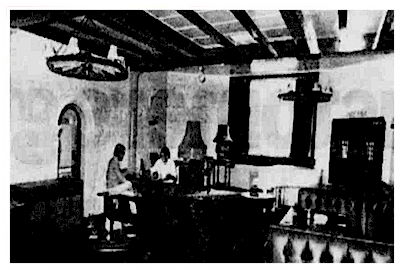 |
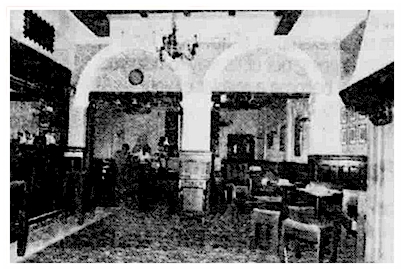 |
|
|
|
|
1986 |
|
|
|
|
This is Terry Clarke, he's a
bit of a traditionalist. Near the end of 1986, Mr Clarke took over
the Fountain pub and, to the relief of many, it would seem, returned
it to its former glory with a total refit.
Terry and his wife, Sandra, had moved down from Barnsley and had
looked forward to their new home and a fresh challenge. he said the
Fountain was more than just a pub. It's open throughout the day for
breakfast, mid-morning coffees, lunch, and afternoon teas.
We can't help but think that the efforts of former landlord Max
Rauber and his 'swingiest pub' theme didn't quite work out. |
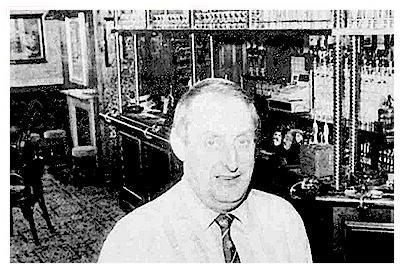 |
|
|
|
|
Iterations through
time |
|
|
|
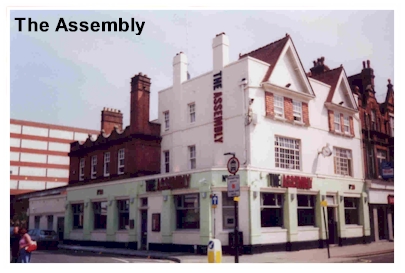 |
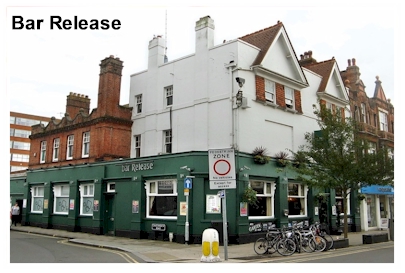 |
| |
|
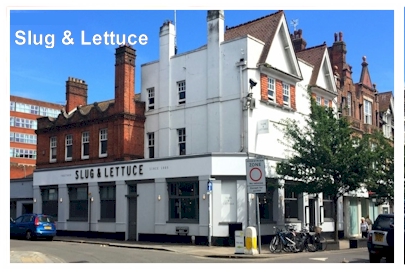 |
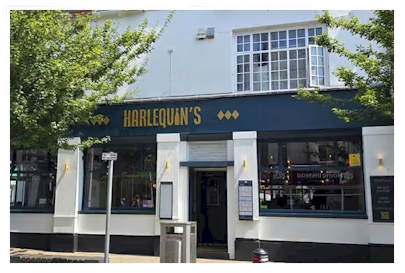 |
| |
|
|
2011 |
| |
|
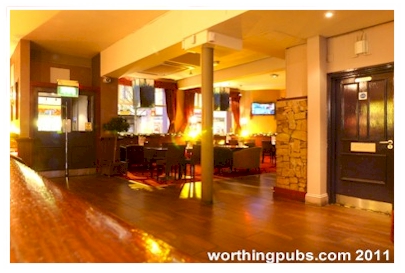 |
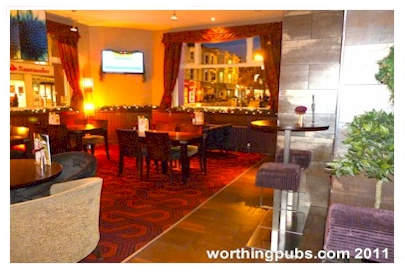 |
| |
|
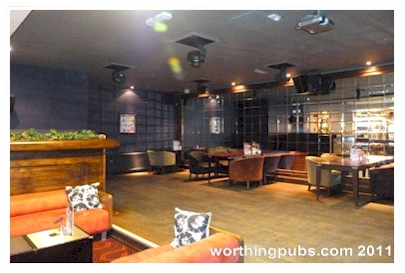 |
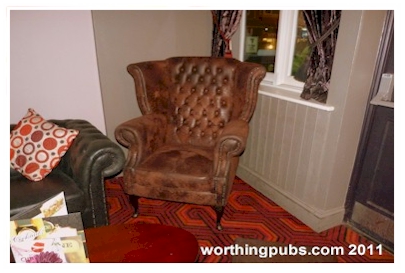 |
| |
|
|
1997 |
| |
|
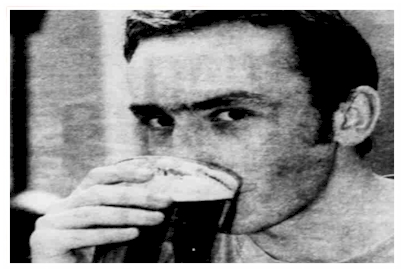 |
Pictured left
is Paul Stanford sampling the Fathom & Firkin's Ice Cream Beer, Mr
Stanford's comment, 'Actually, that is quite nice, a summer time
treat'.
Russell Brown, the pub's production manager, is behind the idea, a
celebration of National Ice Cream Week. Mr Brown said, 'Many beer
drinkers tend to switch to lager during the warmer months because it
is lighter and cooler'.
The beer doesn't actually contain Ice Cream, but rather has an
infusion of vanilla pods to give a creamy flavour. |
| |
|
|
2025 |
| |
|
|
Opens as Harlequin's cocktail
bar |
|
| |
|
|
Time Line |
A little bit extra |
|
1866 - 1891 Richard Carter
1897 - Edwin Tyrrell
1899 - 1905 David Ovenstone
1922 - Tom Robertson
1914 - Howell & Sons
1919 - Frank Howell (The Fountain)
1932 - 1968 Ada Nighy
1946 - 1968 Leonard Nighty (son of above)
1970 - Peter & Ruth Burgess
19?? - 1975 Harold Wilson
1975 - Max & Marion Rauber (Refurbished)
1979 - 1988 Peter & Wendy Richardson
1986 - Terry & Sandra Clark (car park became garden)
1990 - Mark Booth
1993 - Terry Andrews
1996 - Became Fathom & Firkin
1999 - Krista Bullock (as The Assembly)
2000 - Refit
2016 - Opens as the Slug and lettuce |
Tuesday, 14 August 1893: In
the cellar of a disused portion of the Fountain Inn, a body was
discovered. It was identified as that of Henry Miles, a pub landlord
from London who had been staying with his brother, who was the
landlord of the Fountain. When the body was discovered, a razor lay
near him, and his head was almost severed from his body.
The inquest, held in the Fountain Inn, heard how Henry had become
jealous of his wife, taken to excess drinking to the extent that she
had threatened to sell her house and leave. Mrs Miles had previously
taken a revolver from her husband to prevent him from shooting
himself. A verdict of temporary insanity was returned.
1975: A diary belonging to
Thomas Nighy was found in a ventilation shaft, his father ran the
pub from 1932 to 1969 |
| |
|
       |
|
Wheelchair accessed via side
entrance |
| |
|
 |
 |